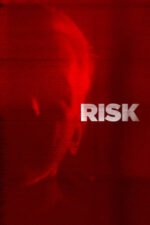Digging Deeper: The Power & Peril of Investigative Journalism in Film
Hey everyone! So, I was thinking about something lately – how often we see “investigative journalism” thrown around these days, and how it’s become a fascinating lens through which to tell stories on film. It's more than just reporting the news; it's about uncovering hidden truths, challenging power structures, and sometimes, putting yourself directly in harm’s way. And cinema has really embraced that complexity.
Think about it: at its core, investigative journalism is about relentless curiosity and a refusal to accept things at face value. That spirit translates beautifully to film – the slow burn of discovery, the mounting tension as you get closer to the truth, the potential for real consequences.
Take "Off the Record," for example. Set against the backdrop of the Vietnam War, it’s not just about a journalist chasing a story; it's about the moral compromises and personal sacrifices that come with challenging authority during times of conflict. It really highlights how investigative work isn’t always clean or easy – sometimes, it leaves scars. It reminds me a bit of All The President’s Men, in its depiction of dogged determination against seemingly insurmountable odds.
Then you have documentaries like "Madeleine McCann: The Unseen Evidence." These films aren't just presenting facts; they're showcasing the process—the painstaking research, the interviews, the ethical considerations that journalists face when dealing with incredibly sensitive and heartbreaking situations. It’s a stark reminder of the responsibility that comes with wielding this kind of power. And "Alien Contact: Government Coverup" plays on our fascination with conspiracy theories, exploring how investigative work can be used to question official narratives – even if those narratives seem outlandish at first glance.
But it's not all high-stakes political thrillers or true crime. Even something like “Irresistible: Why We Can’t Stop Eating” uses the tools of investigation to expose uncomfortable truths about our food system. Chris van Tulleken, as a scientist and journalist, dissects how processed foods are engineered to be addictive – it's investigative work applied to everyday life! And "Out of Plain Sight," with its focus on environmental pollution, demonstrates how journalism can shine a light on corporate negligence and the long-term consequences of our actions.
What I find particularly compelling is how these films often grapple with the cost of truth. “Adrienne,” for instance, isn’t just about uncovering the circumstances surrounding Adrienne Shelly's tragic death; it's about honoring her legacy and acknowledging the pain left behind by those who sought justice. It’s a powerful reminder that even when the story is told, the human cost remains.
Ultimately, films exploring investigative journalism offer us more than just entertainment. They challenge us to be critical thinkers, to question authority, and to appreciate the vital role journalists play in holding power accountable – even when it's uncomfortable. They’re a potent reminder that truth-seeking is rarely simple, but always essential.
What are your thoughts? Any investigative journalism films you think deserve a mention? Let’s chat!







































